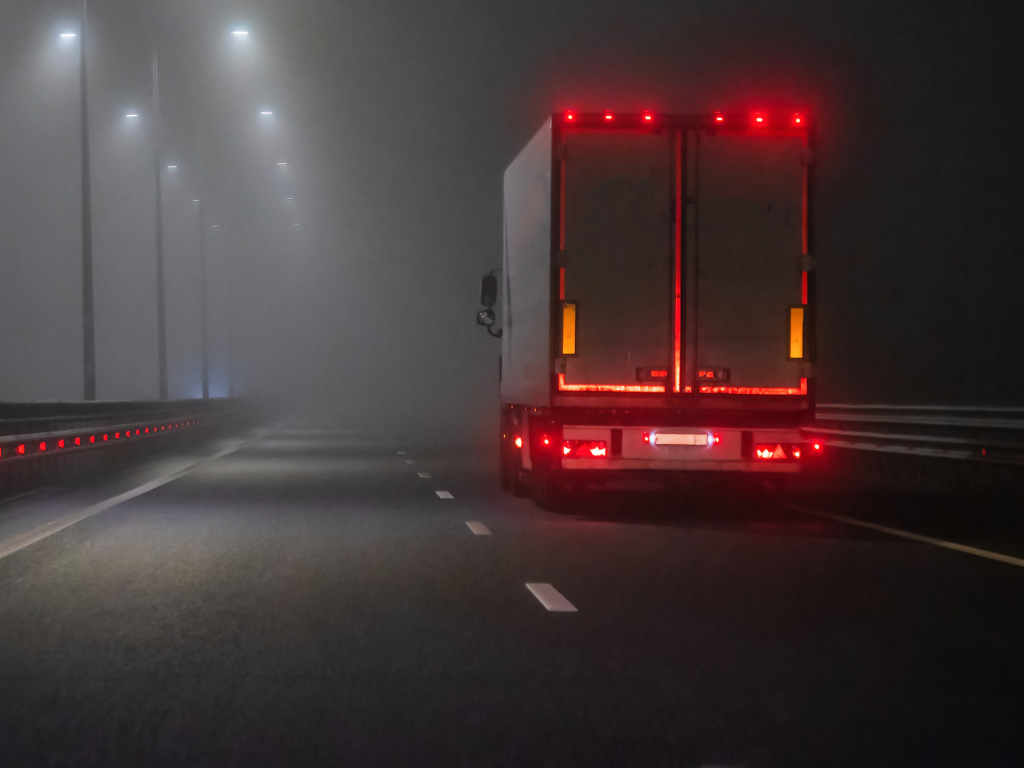The Federal Motor Carrier Safety Administration (FMCSA) denied Intellistop, Inc.’s (Intellistop) application for an exemption to Section 393.25(e) of the Federal Motor Carrier Safety Regulations (FMCSRs). This regulation requires all brake lamps to be steady-burning.
Intellistop requested a five-year exemption applicable to all commercial motor vehicles (CMVs) to allow for the use of its braking module. When brakes are applied, the module “…pulses the preexisting brake, clearance and I.D. lamp…” for two seconds before returning to a steady-burning state.
Intellistop’s President, Michelle Hanby, emphasized that in the event of failure, “…the brake, clearance, and I.D. lamps will default to normal OEM function and illumination.”
Intellistop asserts that the module “…would allow commercial carriers to not only maintain operational safety levels, but also implement more efficient and effective operations.” Intellistop referenced research conducted by the National Highway Transportation Safety Administration (NHTSA) in 2009 that concluded “…rear lighting continues to look promising as a means of reducing the number and severity of rear-end crashes.”
Intellistop noted that exemptions have been granted to National Tank Truck Carriers Inc. (NTTC) and Grote Industries, LLC. NTTC’s exemption allows for the installation of red or amber brake-activated pulsating lamps. The Grote exemption allows for the installation of amber brake-activated pulsating warning lamps. In both cases, the exemption is limited to five years and all pulsating devices must be used in conjunction with steady-burning brake lamps.
FMCSA has the authority to grant exemptions if it provides “… a level of safety that is equivalent to, or greater than, the level that would be achieved absent the exemption.” This standard is established in 49 U.S.C. 31136(e) and 49 U.S.C. 31315(b).
FMSCA determined that Intellistop’s module did not meet this standard and felt the request for an industry-wide exemption was too broad.
FMCSA noted the lack of relevant research to support Intellistop’s request and the absence of specific data about the operational features of the device.
In addition, “…Intellistop’s application seeks to alter the performance of the FMVSS-required lighting device on all CMVs rather than adding additional pulsating lights.” This differs from the exemptions granted to NTTC and Grote Industries, LLC in that the original equipment is not altered.
Despite the denial, any CMV can seek an exemption to “…purchase, install, and use Intellistop’s device…” by submitting an application and complying with the “…terms and conditions of an exemption.”
In response to the denial, Intellistop filed suit in the U.S. Court of Appeals on October 7, 2022, requesting a review of the decision. Initial statements were due to the court on November 7, 2022. As we learn more details we’ll be sure to provide updates.
Please take a moment to review your experience with us by leaving us a review!

